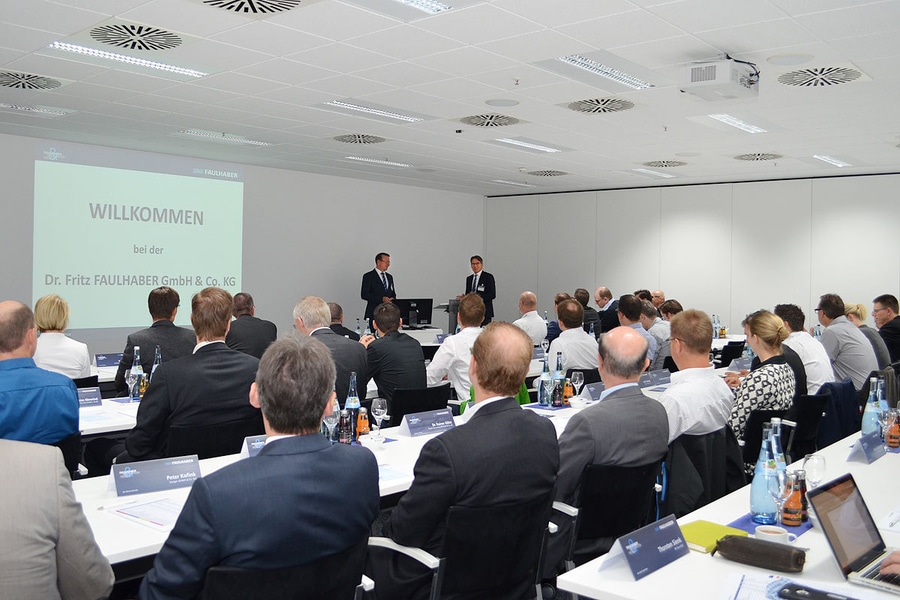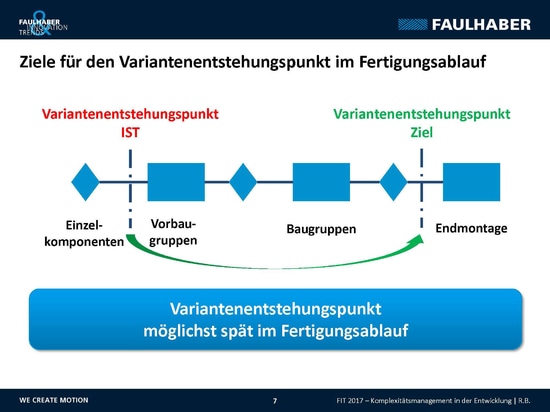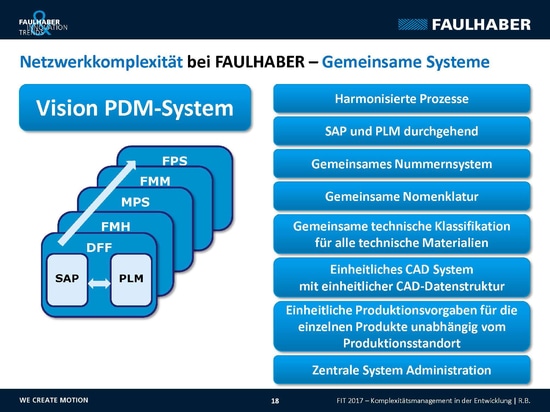
#Industry News
Complexity management – the main topic at FAULHABER Innovation Day
Standardised on the inside, unique on the outside
"Complexity management is not a 'nice to have', but rather a must – and is thus part of our survival strategy", sums up Reiner Bessey. The drastic statement of the FAULHABER development manager might be irritating at first glance, as the success of the drive and automation technology company would appear to be linked primarily to performance values. But complexity determines all aspects of economic activity, right up to the final sales product. Only those who truly master complexity can remain successful in the long run – which is why FAULHABER chose precisely this topic for what was the fifth Innovation Day.
Complex: the ugly sister of simple. Nobody wants it, but everyone knows nothing is possible without it. The following applies in particular in machine construction: the simpler functions and operating units appear on the outside, the more complex they are on the inside. Complex relationships determine entire production flows and supply chains. And anyone who – like FAULHABER – has made a name in drive technology as a highly specialised solution provider must give serious thought to how the constant new development and modification of products can be handled economically. "Complexity management is a job for management", something both Gert Frech-Walter and Dr. Thomas Bertolini agree on. Some 50 representatives of companies from the tool and printing machine industry, medical technology and general automation were welcomed by the two managing directors of FAULHABER to the Innovation Day in Schönaich.
One driver of complexity has its origin in the range of industries that FAULHABER serves with individually adapted drives. "Today, we can achieve little with standard products", says sales manager Peter Weber, who describes the path his company takes in managing the "customisation" in clearly outlined steps and with defined decision-making paths. "The order of the day is to deliver quickly and at reasonable expense." In production, for example, this goal culminates in placing customer-specific variants as close to the end of final assembly as possible. "We need to take this variance into account already during product planning", explains Reiner Bessey, who goes on to say that FAULHABER also reduces complexity as much as possible in the international network of the company group. For the currently 225 developers in four locations, there are clear guidelines for common goals, structures, competencies as well as languages.
Designing processes so as to reduce internal variants has led to measurable success. Jan Patrick Schindler, deputy production manager at FAULHABER, uses the example of a specific motor to list the effects of design modifications, of a changed production control for assembly production and of adaptation of the production processes in final assembly. Today, set-up times have dropped by 40%, the variance for magnet systems by 60% and the lead times of the drive by 62%.






